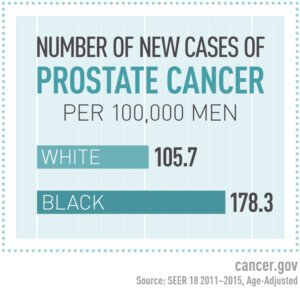
“A traditional prostate biopsy, which is a random sampling of the prostate, can miss prostate cancers,” says Michael Herman, MD, Director of Urologic Oncology at South Nassau Communities Hospital in Oceanside, NY.
The miss rate, continues Dr. Herman, is up to 25 percent of the time. That is not reassuring.
Dr. Herman continues, “This often led to patients requiring repeat biopsies because of a persistently elevated PSA.”

Solution to Biopsies Missing Prostate Cancer
“However, over the last few years, we have developed the use of MRI before biopsy to more accurately target areas in the prostate that are concerning,” explains Dr. Herman.
“These MRI-targeted biopsies (also known as fusion biopsies) are up to 30 percent more accurate than traditional biopsies.”
Which Patients Are Candidates for Repeat Biopsy for Prostate Cancer?
“Patients should carefully consider whether they need a repeat biopsy based on how ‘at risk’ they are for prostate cancer,” says Dr. Herman.
“These risk factors include things such as a family history of prostate cancer, how high the PSA is, certain genetic conditions, age or even ethnic background.
“There are newer, simple blood tests that are more specific than PSA for prostate cancer.
“These tests, along with MRIs, can help determine which men truly need a repeat biopsy versus those men who just have an elevated PSA for benign reasons (such as an enlarged prostate, prostatitis, etc.).”
How Does a Biopsy Miss Prostate Cancer?

Prostate cancer. Creativecommons.org/licenses/by/4.0/ Wikimedia Commons
“The traditional prostate biopsy is a random sampling of the prostate, so if the biopsy needle just happens to miss the tumor, the biopsy can come back falsely negative,” explains Dr. Herman.
“This can also happen for small prostate cancers or prostate cancers that are in areas that are difficult to biopsy, such as the front of the prostate.
“This is why MRI-targeted biopsies have proven so useful.
“By guiding the urologist to the areas that are most likely to have cancer, MRI-targeted biopsies are much more accurate than traditional biopsies.”
Dr. Herman’s interests include reducing the over-diagnosis and over-treatment of prostate cancer by utilizing the latest biomarkers and imaging techniques. He is at the forefront of treatment and research of urologic cancers.
 Lorra Garrick has been covering medical, fitness and cybersecurity topics for many years, having written thousands of articles for print magazines and websites, including as a ghostwriter. She’s also a former ACE-certified personal trainer.
Lorra Garrick has been covering medical, fitness and cybersecurity topics for many years, having written thousands of articles for print magazines and websites, including as a ghostwriter. She’s also a former ACE-certified personal trainer.
.












